Ribosomes
Ribosomes are small, spherical organelles found in the cytoplasm of a cell. They are responsible for protein synthesis, the process by which the cell makes proteins. Ribosomes can be found floating freely in the cytoplasm or attached to the endoplasmic reticulum. They are composed of two subunits made up of RNA and proteins.
Structure of Ribosomes
Ribosomes are made up of two subunits: the large subunit and the small subunit. These subunits are composed of RNA and proteins. The small subunit reads the mRNA, which contains the genetic information for the protein, while the large subunit helps to assemble the protein by linking amino acids together.
Function of Ribosomes
Ribosomes play a crucial role in protein synthesis. They use the genetic information from the mRNA to assemble amino acids into a specific sequence, forming a protein. This process occurs in two main stages: translation and transcription. During translation, the ribosomes read the mRNA and assemble the corresponding amino acids to form a protein. In transcription, the genetic information from DNA is transcribed into mRNA, which is then used by the ribosomes during translation.
Study Guide
- What is the main function of ribosomes?
- Where are ribosomes found in a cell?
- What are the two main stages of protein synthesis involving ribosomes?
The main function of ribosomes is protein synthesis, which involves assembling amino acids into a specific sequence to form a protein.
Ribosomes can be found floating freely in the cytoplasm or attached to the endoplasmic reticulum.
The two main stages are transcription, where genetic information from DNA is transcribed into mRNA, and translation, where ribosomes read the mRNA and assemble amino acids into a protein.
[Ribosomes] Related Worksheets and Study Guides:
.◂Science Worksheets and Study Guides First Grade. Life cycles
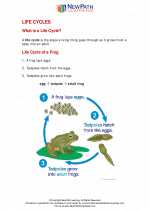
 Activity Lesson
Activity Lesson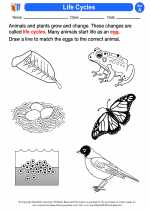
 Worksheet/Answer key
Worksheet/Answer key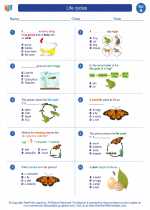
 Worksheet/Answer key
Worksheet/Answer key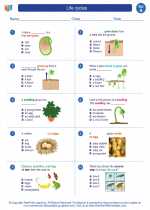
 Worksheet/Answer key
Worksheet/Answer key
 Worksheet/Answer key
Worksheet/Answer key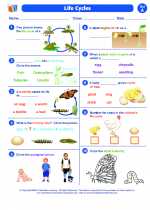
 Worksheet/Answer key
Worksheet/Answer key
